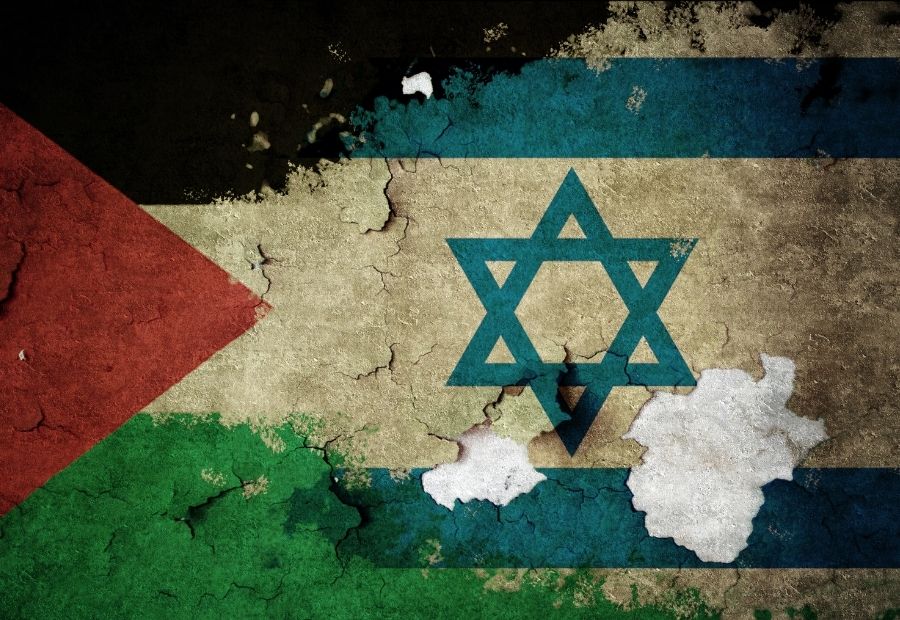The ongoing conflict between Israel and Hamas has been raging for over a week, resulting in the death of hundreds of people and injuring thousands more. The situation has sparked widespread protests and condemnation across the world, with calls for a ceasefire and a peaceful resolution. But what are the root causes of this war, and how can we understand them from an existential perspective?
Existentialism is a philosophical movement that emerged in the 20th century, particularly after the horrors of World War II. It emphasizes the freedom and responsibility of human beings to create their own meaning and values in an absurd and indifferent world. Famous existentialists such as Jean-Paul Sartre, Albert Camus, and Martin Heidegger explored themes of anxiety, death, alienation, authenticity, and choice in their works.

One of the key concepts in existentialism is the notion of the “Other”. The Other is anything or anyone who is different from oneself, and who challenges one’s identity and worldview, thereby threatening one’s freedom and security. The Other can be a person, a group, a culture, a religion, or even an idea. The Other can also be a source of fascination, admiration, love, or respect. However, the Other can also provoke fear, hatred, violence, or oppression.
The war between Israel and Hamas can be seen as a manifestation of the existential conflict between two Others: the Israelis and the Palestinians. Both sides have their own histories, narratives, identities, values, and aspirations, and both have suffered from oppression, displacement, trauma, and injustice. Both sides have legitimate claims to the land, the resources, and sovereignty, and both have the right to exist and coexist.
However, both sides also perceive each other as existential threats to their very existence. Each side views the other as enemies, invaders, terrorists, or oppressors, and both sides resort to violence, aggression, retaliation, or self-defense. Each side justifies their actions by appealing to their moral principles, religious beliefs, or national interests. Both sides dehumanize each other by denying their humanity, dignity, or rights.
As an existential psychotherapist, I believe that the only way to end this war and achieve peace is to recognize and respect the Other as a fellow human being. This means acknowledging the complexity and diversity of the Other’s reality, understanding the reasons and emotions behind the Other’s behavior, empathizing with the suffering and needs of the Other, and communicating with the Other in an honest and respectful manner.
This also means taking responsibility for one’s own choices and actions, reflecting on one’s own biases and prejudices, questioning one’s own assumptions and values, and challenging one’s own fears and hatreds. This also means accepting one’s own vulnerability and mortality, facing one’s own anxiety and guilt, and embracing one’s own freedom and creativity.
The war between Israel and Hamas is not inevitable or necessary. It is not a result of fate or destiny, nor is it a consequence of God’s will or history’s logic. It is a product of human decisions and actions, a reflection of human freedom and responsibility, and an expression of human existence and meaning.
Therefore, it is up to us humans to change it. It is up to us to create a new reality and make peace possible.
Source:
(1) War and existentialism | Encore | thenews.com.pk. https://www.thenews.com.pk/tns/detail/561876-war-existentialism.
(2) Existentialism | Definition, History, Characteristics, Examples, Types …. https://www.britannica.com/topic/existentialism.
(3) Existential War – The Mackenzie Institute. https://mackenzieinstitute.com/2008/04/existential-war/.
(4) Existentialism – AllAboutPhilosophy.org. https://www.allaboutphilosophy.org/existentialism.htm.
(5) Existentialism and Classroom Practice – IOSR Journals. https://iosrjournals.org/iosr-jhss/papers/Vol8-issue6/N0868791.pdf.